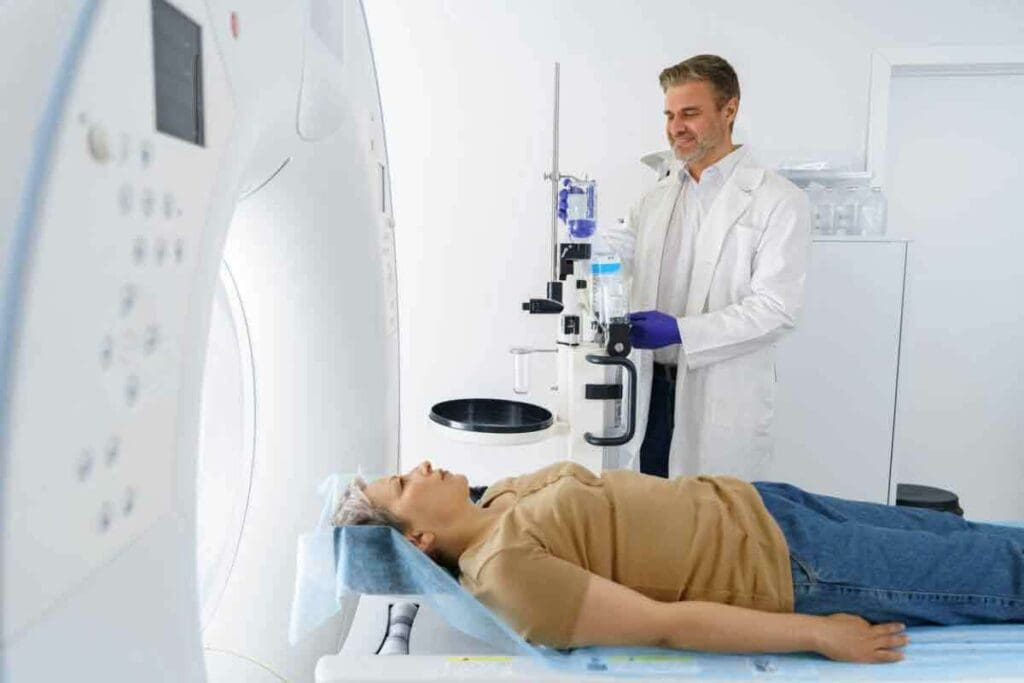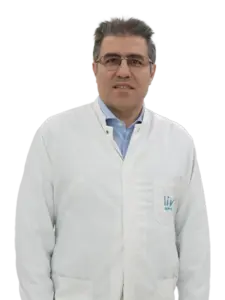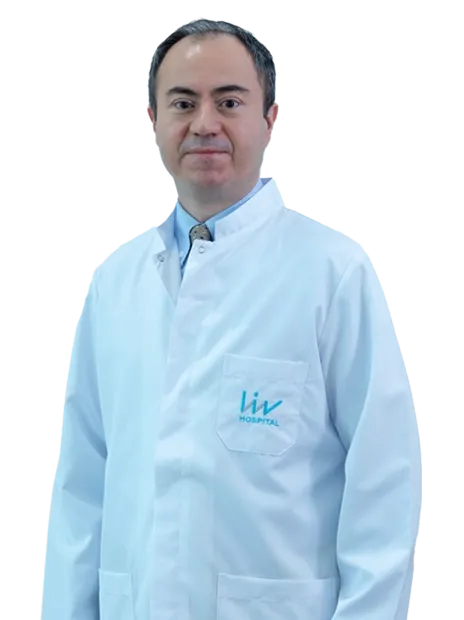
A CT scan, also known as a CAT scan, is a quick test for detailed inside pictures. At Liv Hospital, we know getting a CT scan can make people nervous, especially when they’re unsure how long does it take for a cat scan and what the procedure involves.
Efficient and reliable imaging care is our main goal. We make sure our patients get all the help they need from start to finish.
The whole CT scan process usually takes about an hour. Most of that time is for getting ready. The actual scan is usually under five minutes.
Key Takeaways
- CT scans are rapid diagnostic tests for detailed internal imaging.
- The entire process typically takes about an hour.
- Most of the time is spent on preparation.
- The actual CT scan usually takes fewer than five minutes.
- LivHospital prioritizes efficient and reliable imaging care.
Understanding CT Scans: Basic Overview and Purpose
A CT scan is a high-tech medical imaging method. It combines X-rays and computer tech to show detailed images inside the body. This tool is key in today’s medicine, helping doctors find and track many health issues.
CT scans help us check for injuries, find cancers, and guide treatments. They give us the info we need to make treatment plans that fit each patient’s needs.
What is a CT Scan and How Does it Work?
A CT scan uses X-rays and computer tech to make detailed images of the body. It works by moving an X-ray machine around the body. This captures images from different angles, which a computer then turns into detailed pictures.
Key components of a CT scan include:
- The CT scanner, which houses the X-ray machine and detectors.
- A moving table that slides through the scanner, on which the patient lies.
- A computer system that reconstructs the images.
Common Medical Reasons for CT Scans
CT scans are used for many medical reasons. They help diagnose and track conditions like cancer, heart disease, and internal injuries. They’re also great in emergencies when fast and accurate diagnosis is needed.
| Medical Condition | Use of CT Scan |
| Cancer | Diagnosing and staging cancer, monitoring treatment response. |
| Cardiovascular Disease | Assessing coronary artery disease and detecting calcium deposits. |
| Internal Injuries | Diagnosing injuries to internal organs, detecting bleeding. |
Knowing how CT scans work and why they’re used helps patients understand their importance in healthcare.
How Long Does It Take for a CT Scan? Typical Duration Explained
When you’re getting ready for a CT scan, you might wonder how long it will take. Knowing how long it usually takes can help you feel less anxious and make the whole process easier.
“The actual scanning part is quite fast, usually under five minutes,” says a radiologist. But the whole time you spend at the facility will be longer. This is because of the preparation and other things you need to do.
Standard CT Scan Timing: The 10-30 Minute Range
Most CT scans take between 10 and 30 minutes. This is true for most scans, but some might be shorter or longer. This depends on how complex the scan is and the technology used.
We have the latest CT scanners. They are made to be fast while keeping image quality high. The exact time within this range can change. This depends on the body part being scanned and if contrast material is used.
Actual Scanning Time vs. Total Procedure Time
It’s important to know the difference between the actual scanning time and the total time you spend there. The actual scanning time is when you’re inside the CT scanner. This is usually just a few minutes.
The total procedure time includes getting ready, like changing into a gown and removing jewelry. It also includes getting contrast dye, if needed. Plus, the time to position you on the CT table and any extra scans.
Even though the scan itself is quick, the whole visit can take about 30 minutes to an hour. This way, we make sure we get all the images we need for a correct diagnosis.
The expert says, “CT scans are generally painless and usually take between 10 and 30 minutes to finish.” This time can change based on your situation, but it gives you a rough idea of what to expect.
Different Types of CT Scans and Their Duration
Knowing about the various CT scans and their times can help patients get ready. CT scans are used to check different body parts. The time needed depends on the area and the specific needs of the scan.
Head and Brain CT Scans
Head and brain CT scans help find issues like stroke, tumors, and injuries. They usually take 10-15 minutes. This is because the area is small and the conditions need a quick diagnosis.
Chest and Lung CT Scans
Chest and lung CT scans look at the lungs, heart, and nearby areas. They help spot lung nodules and check lung diseases. These scans take 15 to 20 minutes. The chest area is bigger, so it takes a bit longer.
Abdominal and Pelvic CT Scans
Abdominal and pelvic CT scans check organs like the liver and kidneys. They help find cancers, infections, and injuries. These scans take 20 to 30 minutes. The area is larger, and the organs are complex, making it longer.
How Long Does a Whole Body CT Scan Take?
A whole body CT scan looks at the entire body. It’s used for detailed checks or cancer staging. Expect 30 to 45 minutes for a whole body scan. It’s longer because it covers the whole body.
| Type of CT Scan | Typical Duration |
| Head and Brain CT Scan | 10-15 minutes |
| Chest and Lung CT Scan | 15-20 minutes |
| Abdominal and Pelvic CT Scan | 20-30 minutes |
| Whole Body CT Scan | 30-45 minutes |
CT Scan Time Frame Compared to Other Imaging Methods
Diagnostic imaging procedures vary a lot in how long they take. CT scans are among the quickest ones. Knowing how long different procedures take is key for patient prep and setting expectations.
CT Scanning Time vs. MRI Duration
CT scans and MRI scans are often compared. MRI scans usually take longer, from 15 to 90 minutes. This depends on the scan’s complexity and the body part being checked. On the other hand, a CT scan takes 10 to 30 minutes.
CT scans are faster because they use X-rays to quickly create detailed images of the body’s inside.
The Radiological Society of North America says, “MRI exams can be lengthy due to the need for multiple sequences and the time required for the magnetic field to align the protons in the body.”
“MRI exams can be lengthy due to the need for multiple sequences and the time required for the magnetic field to align the protons in the body.”
Radiological Society of North America
CT Scan vs. X-Ray: Time Differences
X-rays are quick, taking just a few minutes. They expose the body part to X-ray radiation. Though X-rays are faster, they offer less detail than CT scans. This makes CT scans a better choice for detailed diagnostics, even if they take a bit longer.
| Imaging Method | Typical Duration | Level of Detail |
| CT Scan | 10-30 minutes | High |
| MRI | 15-90 minutes | Very High |
| X-Ray | A few minutes | Low to Moderate |
CT Scan vs. PET Scan: Duration Comparison
PET scans assess metabolic activity in the body. They use a radioactive tracer injected into the patient. A PET scan can take 30 minutes to several hours, including tracer distribution time. PET scans offer metabolic info but take longer than CT scans.
In conclusion, CT scans are a good mix of speed and detail. Knowing these differences helps healthcare providers pick the best diagnostic tool for each patient.
Preparing for Your CT Scan: Pre-Procedure Steps
Knowing what to expect before a CT scan can make you feel less anxious. We’ll help you get ready for a smooth and efficient procedure.
Required Paperwork and Registration Time
When you arrive, you’ll need to fill out some paperwork and register. Try to get there at least 30 minutes early to have enough time for everything.
The registration part checks your personal and insurance info. Having your insurance card and ID ready can make this step quicker.
| Document | Description | Importance |
| Insurance Card | Proof of insurance coverage | High |
| ID | Personal identification | High |
| Medical Records | Previous medical history and relevant documents | Medium |
Clothing and Jewelry Considerations
You’ll likely need to change into a hospital gown for the scan. Wear loose, comfy clothes that are easy to take off.
Some items, like jewelry, glasses, and clothes with metal, might need to be removed before the scan.
Dietary Restrictions Before Your Scan
Dietary rules can change based on the CT scan type. For scans of the abdomen or pelvis, fasting might be needed before the scan.
It’s important to follow your doctor’s dietary advice. This ensures the scan’s accuracy and your safety.
By knowing and following these steps, you can make sure your CT scan goes smoothly and well.
Contrast vs. Non-Contrast CT Scans: Impact on CT Scan Duration
CT scans can be done with or without contrast material. This choice affects how long the scan takes. Contrast material is key for many scans, as it makes images clearer and more detailed.
What is Contrast Material and When is it Used?
Contrast material, or dye, is used to improve medical images. It absorbs X-rays differently from body tissues, making certain areas more visible. We use it to diagnose many conditions, like cancers and vascular diseases.
Whether to use contrast depends on the condition and the scan type. For example, it’s vital for looking at blood vessels and tumors.
How Contrast Administration Affects CT Scan Time Length
Adding contrast material can make a CT scan longer. The scan itself is quick, but getting ready for it takes time. This includes administering the contrast.
Here’s how contrast affects scan time:
| Procedure | Time Required |
| Standard CT Scan without Contrast | 10-15 minutes |
| CT Scan with Contrast Administration | 20-30 minutes |
| Additional Time for Contrast Reaction Monitoring | 5-10 minutes (if necessary) |
Potential Delays Due to Contrast Reactions
Some people may react to contrast material, which can be mild or severe. If a reaction happens, we need more time to watch the patient and care for them.
We do everything we can to avoid reactions. This includes checking if patients have had reactions before and looking at their health before giving contrast.
The CT Scan Procedure: Step-by-Step Timeline
The CT scan process has several steps, from check-in to after the scan. Knowing these steps can make your experience smoother and less stressful.
Check-in and Preparation Phase
First, you’ll check in at the reception desk. There, you’ll fill out paperwork and ask any questions you have.
Then, you’ll go to a preparation area. A radiology technician will explain the procedure and answer your questions. You’ll change into a hospital gown and remove any jewelry or clothing that could get in the way.
Positioning on the CT Table
Next, you’ll get on the CT table, a large, doughnut-shaped machine. The technologist will help you get into the right position. This might be lying on your back, side, or stomach, depending on the scan.
It’s important to stay very quiet during the scan. Movement can make the images blurry. The technologist will give you instructions and might use straps or pillows to keep you in place.
The Scanning Process
The scanning itself is quite fast, usually taking 10 to 30 minutes. This depends on the scan’s complexity and the body part being scanned.
During the scan, the table moves slowly through the CT scanner. The scanner rotates around you, taking X-ray images from different angles. You might be asked to hold your breath for a few seconds to get clear images.
| Scan Type | Typical Duration | Preparation Time |
| Head and Brain CT | 5-10 minutes | 10-15 minutes |
| Chest and Lung CT | 10-15 minutes | 15-20 minutes |
| Abdominal and Pelvic CT | 15-30 minutes | 20-30 minutes |
Post-Scan Procedures
After the scan, you’ll be helped off the table and can change back into your clothes. Usually, you can go back to your normal activities right away, unless told not to.
The images from your CT scan will be reviewed by a radiologist. The results will be sent to your doctor, who will talk about them with you later.
We know that getting a CT scan can be scary for many people. Our team is here to make the process as comfortable and stress-free as we can. We’ll provide you with the care and support you need during your visit.
Factors That May Extend How Long a CT Scan Takes
Many things can affect how long a CT scan takes. This includes the patient’s health and technical issues. Knowing these can help patients get ready and know what to expect.
Patient-Related Factors
Things about the patient can change how long a CT scan lasts. For example, anxiety or claustrophobia might need extra time to calm down. Also, some medical conditions might require special care or positioning.
Some patients might need contrast material, which can make the scan longer. Administering this material and watching for reactions can add time.
Technical and Facility Factors
Technical problems or old equipment can also slow down a CT scan. Faults or needing to calibrate the machine can cause delays. Staffing issues, like a radiologist or technician being away, can also make patients wait longer.
The age and quality of the CT scanner matter too. Older machines might take longer than newer, better ones.
Emergency Cases and Their Impact on Scheduling
Emergency cases can mess up the schedule of CT scans. They often get priority, which can delay other scans.
Here’s a table showing how different factors can affect CT scan time:
| Factor | Potential Impact on CT Scan Duration |
| Patient Anxiety/Claustrophobia | Increased preparation time |
| Medical Conditions | Special care and positioning required |
| Contrast Material Administration | Additional time for administration and monitoring |
| Equipment Malfunction | Delays due to repair or calibration |
| Staffing Issues | Extended waiting times |
| Emergency Cases | Priority given to emergency cases, delaying scheduled scans |
Understanding these factors can help patients prepare better for their CT scan. It can also help them know what to expect in terms of time.
Conclusion: CT Scans as Efficient Diagnostic Tools
We’ve looked into CT scans, including how long they take and how they compare to other imaging methods. CT scans are quick and precise, giving detailed views of the body’s inside.
The time it takes for a CT scan is usually between 10 to 30 minutes. This makes it a fast choice for patients. The exact time can change based on the scan type and if contrast material is used. Yet, CT scans are an efficient diagnostic tool. They help doctors diagnose and treat health issues well.
CT scans are great because they give high-quality images fast. This helps doctors make quick diagnoses and plan treatments. Knowing what to expect from a CT scan helps patients prepare and feel less anxious.
In summary, CT scans are a key tool in today’s medicine. They offer speed, accuracy, and detail. Their efficiency makes them a vital part of medical diagnosis. We keep counting on them to give our patients the best care.
FAQ
How long does a CT scan typically take?
A CT scan usually takes 10 to 30 minutes. The actual scan part is just a few minutes.
What factors can affect the duration of a CT scan?
Several things can change how long a CT scan takes. These include the scan type, if contrast is needed, and how ready the patient is. Also, technical and facility issues can play a role.
How long does a head or brain CT scan take?
A head or brain CT scan usually takes 5-10 minutes. But, it might take longer to get ready and for contrast.
What is the difference between a CT scan with contrast and without contrast?
A CT scan with contrast uses dye to highlight body areas. This adds a few minutes to the scan time.
How long does it take to prepare for a CT scan?
Getting ready for a CT scan can take 15-30 minutes. You’ll need time to fill out paperwork and get ready.
Can I wear jewelry or clothing with metal during a CT scan?
No, it’s best to remove any metal jewelry or clothing. This helps avoid problems with the scan images.
Are there any dietary restrictions before a CT scan?
Yes, you might need to fast or follow a special diet before some CT scans. Your doctor will tell you what to do.
How does the CT scan procedure work?
For a CT scan, you lie on a table that moves into a scanner. The scanner uses X-rays to take images of your body.
What happens after the CT scan is complete?
After the scan, you can usually go back to normal activities. The images are then checked by a radiologist. They send the results to your doctor.
How long does a whole-body CT scan take?
A whole body CT scan can take 30-60 minutes. This depends on the scan’s specific needs.
How does CT scan time compare to MRI duration?
CT scans are faster than MRI scans. CT scans take 10-30 minutes, while MRI scans can take 15-90 minutes.
What are some common reasons for delays during a CT scan?
Delays can happen for many reasons. These include technical problems, patient issues, or needing more images or contrast.
References
- Schoppe, W. D., Hessel, S. J., & Adams, D. F. (1981). Time requirements in performing body CT studies. Journal of Computer Assisted Tomography, 5(4), 513-515. https://pubmed.ncbi.nlm.nih.gov/6790588/
- Patel, P. R. (2023). CT Scan. In StatPearls. StatPearls Publishing. https://www.ncbi.nlm.nih.gov/books/NBK567796/
































